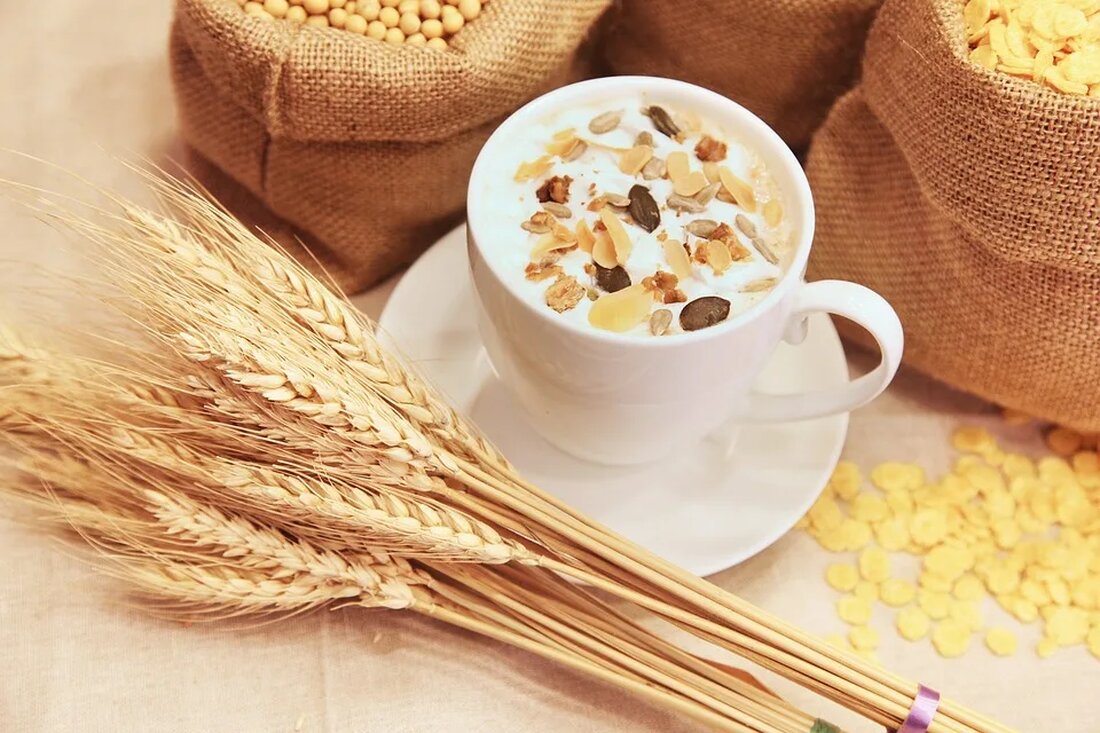Nutrition and aging: what is changing?
Nutrition and aging: what is changing? A healthy diet plays a crucial role in our overall well-being and health. It is particularly important as you get older to pay attention to a balanced and varied diet. As we age, our bodies change and have specific nutritional needs. In this article, we'll take a closer look at what changes in diet as we age and what older people should pay attention to to stay healthy. Changes in the body with age As we age, the muscle mass in our body decreases and the metabolism slows down. This leads to reduced energy requirements. At the same time …

Nutrition and aging: what is changing?
Nutrition and aging: what is changing?
A healthy diet plays a crucial role in our overall well-being and health. It is particularly important as you get older to pay attention to a balanced and varied diet. As we age, our bodies change and have specific nutritional needs. In this article, we'll take a closer look at what changes in diet as we age and what older people should pay attention to to stay healthy.
Changes in the body with age
As we age, the muscle mass in our body decreases and metabolism slows down. This leads to reduced energy requirements. At the same time, however, there may also be an increased need for nutrients, as older people may be less able to absorb nutrients. In addition, the hormonal balance changes with age, which can have an impact on fat metabolism and the feeling of satiety.
The importance of macro and micronutrients
As we age, it is important to consume sufficient amounts of both macro and micronutrients. Macronutrients such as carbohydrates, fats and proteins are the main sources of energy for our body. They should be in a balanced relationship with each other.
Carbohydrates provide energy and should come primarily from whole grains, fruits and vegetables. It is advisable to avoid refined sugar and foods with high glycemic index as they can cause blood sugar levels to rise quickly and have a negative impact on health.
Fats are important for the absorption of fat-soluble vitamins and provide sufficient energy. Healthy fats, such as unsaturated fatty acids, are found in nuts, seeds, fish and high-quality vegetable oils. However, the consumption of saturated fatty acids, which are mainly found in animal products, should be reduced.
Proteins are important for maintaining and building muscle mass. It is recommended to ensure adequate protein intake, which can be ensured, for example, by consuming lean meat, fish, legumes and dairy products.
In addition to macronutrients, micronutrients such as vitamins and minerals are also very important. As you age, it may be more difficult to absorb certain nutrients from food. Therefore, it is advisable to ensure a varied diet that contains sufficient amounts of vitamins and minerals.
Hydration in old age
Adequate fluid intake is particularly important as we age. As you age, your sense of thirst can decrease, increasing your risk of dehydration. Lack of fluids can lead to a deterioration in physical and mental functions. It is recommended to consume at least 1.5 to 2 liters of fluid daily. In addition to water, unsweetened herbal teas and diluted fruit juices are also good options.
Special nutritional needs in old age
As we age, certain nutritional needs may arise that require special attention.
A sufficient supply of fiber is important for healthy digestion and can prevent constipation. Fiber is mainly found in whole grain products, fruits, vegetables and legumes. It is recommended to consume at least 30 grams of fiber per day.
Adequate calcium intake is important for maintaining bone health. Dairy products, such as milk, cheese and yogurt, are good sources of calcium. If you have lactose intolerance, alternatives such as calcium-fortified plant milk or green vegetables such as broccoli or kale can help.
The supply of vitamin B12 can become more difficult with increasing age, as it can be more difficult to absorb the vitamin from food. Vitamin B12 is mainly found in animal products. Therefore, older people may need to supplement with vitamin B12 to avoid deficiency symptoms.
Tips for a healthy diet in old age
- Es ist ratsam, Mahlzeiten frisch zuzubereiten und auf Fertigprodukte zu verzichten. Eine ausgewogene Ernährung sollte aus frischem Gemüse, Obst, Vollkornprodukten, magerem Fleisch und gesunden Fetten bestehen.
- Portionsgrößen sollten angepasst werden, um den reduzierten Energiebedarf im Alter zu berücksichtigen. Es ist wichtig, auf moderate Portionen zu achten, um Übergewicht zu vermeiden.
- Regelmäßige Bewegung kann den Stoffwechsel ankurbeln und den Erhalt der Muskelmasse unterstützen. Körperliche Aktivität sollte daher Teil des täglichen Lebensstils sein.
- Es ist ratsam, auf den Konsum von Alkohol und Nikotin zu verzichten. Beide Substanzen können die Gesundheit im Alter negativ beeinflussen.
- Regelmäßige Arztbesuche und Gesundheitsvorsorgeuntersuchungen sind wichtig, um mögliche Nährstoffmängel oder gesundheitliche Probleme frühzeitig zu erkennen und behandeln zu können.
Conclusion
Nutrition plays a crucial role in health and well-being as we age. As we age, the body changes and has specific nutritional needs. A balanced diet that contains sufficient macro and micronutrients as well as adequate fluid intake are particularly important. It is advisable to pay attention to a varied and fresh diet in order to cover nutrient requirements as you age and to prevent possible deficiency symptoms. Regular exercise, avoiding alcohol and nicotine, and regular visits to the doctor are other important aspects of a healthy lifestyle in old age.
You can find out more about natural and healthy nutrition in our guide magazine Your-Heilpraktiker.com

 Suche
Suche
 Mein Konto
Mein Konto
